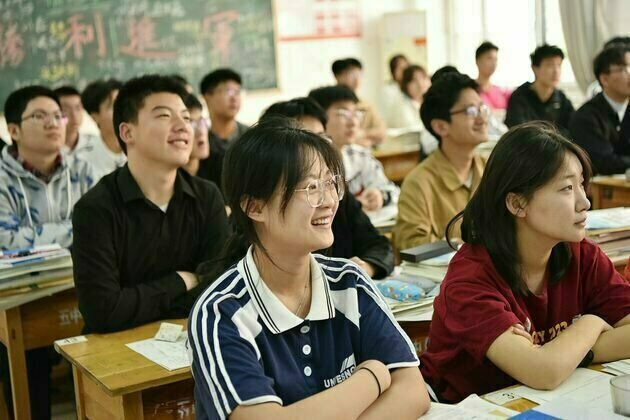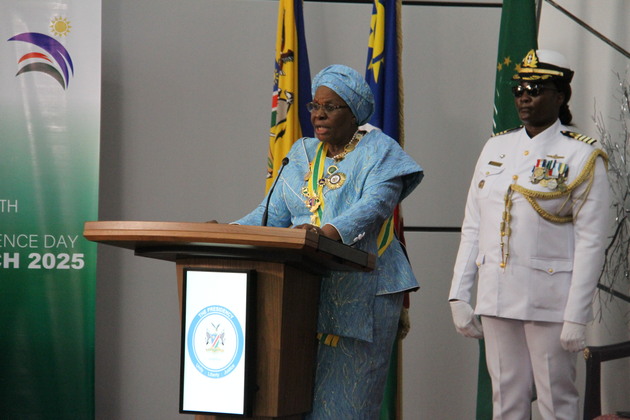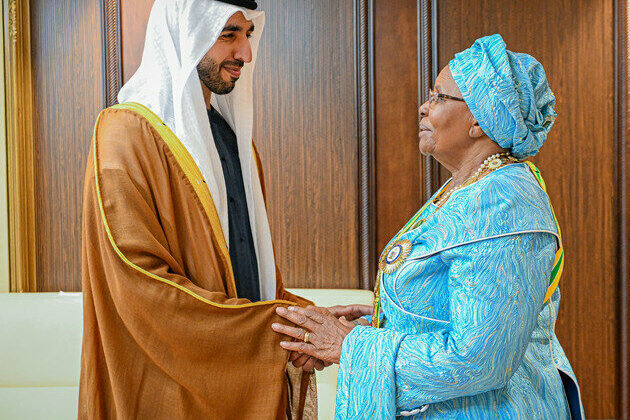What makes Chinese students so successful by international standards?
The Conversation
20 Oct 2024, 22:15 GMT+10

There is a belief widely held across the Western world: Chinese students are schooled through rote, passive learning - and an educational system like this can only produce docile workers who lack innovation or creativity.
We argue this is far from true. In fact, the Chinese education system is producing highly successful students and an extremely skilled and creative workforce. We think the world can learn something from this.
In a viral video earlier this year, Apple CEO Tim Cook highlighted the unique concentration of skilled labour that attracted his manufacturing operations to China:
In the US, you could have a meeting of tooling engineers, and I'm not sure we could fill the room. In China you could fill multiple football fields.
To which Tesla CEO Elon Musk quickly responded on X: "True".
When South African President Cyril Ramaphosa visited the Shenzhen headquarters of electric vehicle manufacturer BYD earlier this year, he was surprised to learn the company was planning to double its 100,000-strong engineering taskforce within the coming decade.
He might not have been so surprised had he known Chinese universities are producing more than ten million graduates every year - the foundation for a super-economy.
Chinese learners achieve remarkable success levels compared to their Western - or non-Confucian-heritage - counterparts.
Since Shanghai first participated in the PISA educational evaluation in 2009, 15year-olds in China have topped the league table three out of four times in reading, mathematics and science.
How can a supposedly passive and rote Chinese system outperform its Western counterparts? A number of Australian scholars have been studying this "paradox of the Chinese learner" since the 1990s.
Their research shows those common perceptions of Chinese and other Asian learners are wrong. For example, repetition and meaningful learning are not mutually exclusive. As one Chinese saying goes:
- meaning reveals itself when you read something many times.
An emphasis on education is a defining feature of Chinese culture. Since Confucianism became the state-sanctioned doctrine in the Han Dynasty (202BCE-220CE), education has entered every fabric of Chinese society.
This became especially true after the institutionalisation of the Keju system of civil service examinations during the Sui Dynasty (581CE-618CE).
Today, the Gaokao university entrance examination is the modern Keju equivalent. Millions of school leavers take the exam each year. For three days every July, Chinese society largely comes to a standstill for the Gaokao.
While the cultural drive for educational excellence is a major motivation for everyone involved in the system, it is not something that is easily learned and replicated in Western societies.
However, there are two principles we believe are central to Chinese educational success, at both the learner and system levels. We use two Chinese idioms to illustrate these.
The first we call "orderly and gradual progress" - . This principle stresses patient, step-by-step and sequenced learning, sustained by grit and delayed gratification.
The second we call "thick accumulation before thin production" - . This principle stresses the importance of two things:
The epitome of orderly and gradual progress is the way calligraphy is learned. It goes from easy to difficult, simple to complex, imitating to free writing, technique to art. Since 2013, it has been a mandatory weekly lesson in all primary and middle schools in China.
The art of Chinese writing embodies patience, diligence, breathing, concentration and an appreciation of the natural beauty of rhythm. It teaches Chinese values of harmony and the aesthetic spirit.
"Thick accumulation" can be illustrated in the way students study extremely hard for the national Gaokao examination, and also during tertiary education. This way they accumulate the basic knowledge and skills required in a modern society.
"Thin production" refers to the ability to narrow or focus this accumulated knowledge and skill to find and implement creative solutions in the workplace or elsewhere.
On the face of it, the emphasis on gradual and steady progress, and on accumulation of basic knowledge and skills, may look like a slow, monotonous and uninspiring process - the origin of those common myths about Chinese learning.
In reality, it boils down to a simple argument: without a critical mass of basic knowledge and skills, there is little to assimilate and integrate for productive creativity.
Of course, there are problems with Chinese learning and education, not least the fierce competitiveness and overemphasis on examinations. But our focus here is simply to show how two basic educational principles underpin Chinese advances in science and technology in a modern knowledge economy.
We believe these principles are transferable and potentially beneficial for policymakers, scholars and learners elsewhere.
 Share
Share
 Tweet
Tweet
 Share
Share
 Flip
Flip
 Email
Email
Watch latest videos
Subscribe and Follow
Get a daily dose of Nigeria Sun news through our daily email, its complimentary and keeps you fully up to date with world and business news as well.
News RELEASES
Publish news of your business, community or sports group, personnel appointments, major event and more by submitting a news release to Nigeria Sun.
More InformationInternational
SectionUS seeks global support to block China’s access to American chips
WASHINGTON, D.C.: Commerce Secretary Howard Lutnick said the Trump administration is asking companies and foreign governments to help...
Many dead after Israeli air strike on Gazan funeral
Israel Air Force pilots have bombed a funeral in northern Gaza, killing more than a dozen mourners. Family and friends of Dr Wasim...
Delta Jet's wing strikes runway during rough landing at LaGuardia
NEW YORK CITY, New York: A Delta Air Lines plane's wing hit the runway at LaGuardia Airport during a rough landing over the weekend....
Amid measles outbreak, cases in Texas, New Mexico climb to 317
AUSTIN/SANTA FE: Measles cases in Texas and New Mexico increased to 317 on March 18, up from 294 four days earlier, as the U.S. faces...
US weighs broad travel ban covering dozens of countries
WASHINGTON, D.C.: The Trump administration is considering strict new travel restrictions for citizens of dozens of countries, according...
US: Maine violated federal law by allowing transgender girls in sports
WASHINGTON, D.C.: The Trump administration announced this week that Maine's education officials violated federal law by allowing transgender...
Africa
SectionNAMIBIA-WINDHOEK-NETUMBO NANDI-NDAITWAH-PRESIDENT-SWEARING-IN
(250321) -- WINDHOEK, March 21, 2025 (Xinhua) -- Netumbo Nandi-Ndaitwah (Front) speaks during a presidential inauguration ceremony...
SUDAN-KHARTOUM-SUDANESE ARMED FORCES-PRESIDENTIAL PALACE-REGAINING
(250321) -- KHARTOUM, March 21, 2025 (Xinhua) -- Photo taken on March 21, 2025 shows the presidential palace in Khartoum, Sudan. The...
On behalf of UAE President, Shakhboot bin Nahyan attends Inauguration Ceremony of President of Namibia
WINDHOEK, 21st March, 2025 (WAM) - On behalf of President His Highness Sheikh Mohamed bin Zayed Al Nahyan, Sheikh Shakhboot bin Nahyan...
Amid war's roar, Sudanese musicians drum for peace
Dancers from a folk troupe perform a traditional dance in Port Sudan, eastern Sudan, Feb. 26, 2025. (Photo by Urqia Elzaki/Xinhua)KHARTOUM,...
Mumbai Indians vs Chennai Super Kings is biggest rivalry of IPL: Mark Boucher
New Delhi [India] March 21 (ANI) Legendary South African wicketkeeper Mark Boucher has said that Mumbai Indians and Chennai Super Kings...
UAE President, VPs congratulate President of Namibia on Independence Day
ABU DHABI, 21st March, 2025 (WAM) - President His Highness Sheikh Mohamed bin Zayed Al Nahyan has sent a message of congratulations...













